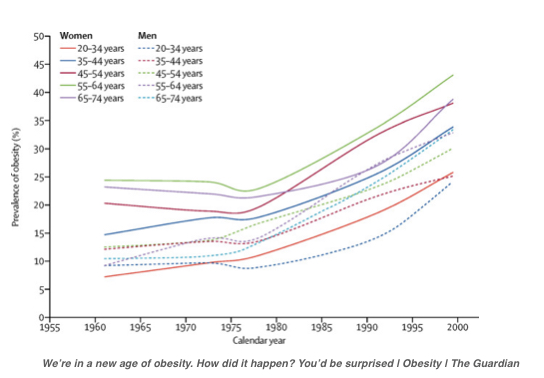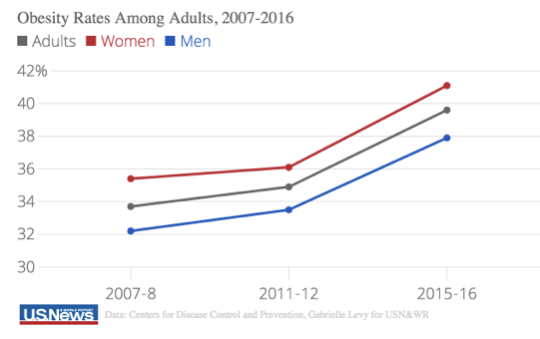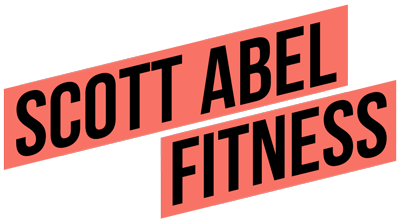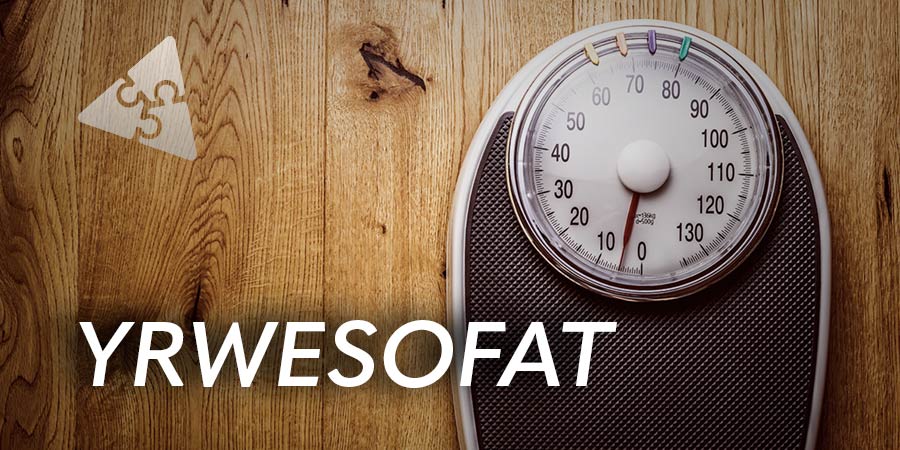The way we were: The way we are!
The other day I was looking through class pictures from childhood. I had some old grainy pictures from kindergarten and grade one and all the way up to grade 6 and such. In terms of calendar years we’re talking about the late 60’s to early 70’s I guess.
And you know what stands out? There were no overweight kids in the pictures. And for that matter, there are no overweight faculty in the pictures either. I mean, it’s right there and it’s obvious. And yet this is certainly not the case anymore.
WHY? What changed? Has human physiology morphed into something else? – not hardly!
The explosion of fast food chains in the mid to late 70’s, less exercise and overall movement because of automation, increased portion sizes, increased daily caloric intake, and increased sugar and fat in the standard diet have all sort of combined to create the perfect storm exploiting our human biology and metabolism which evolved to go out of its way to store excess energy intake as fat and to fight against weight-loss.
There are all kinds of graphs from all kinds of research sources that show the upward trend of obesity levels through the decades. There are just as many graphs that show the correlation to the contributing factors I mentioned above as well. And I also discuss these factors in some detail in my book Beyond Metabolism.


Frankly, I’m surprised we aren’t more overweight than we are, but at the same time, we certainly seem to be getting there.
And now that being overweight and now that obesity is so commonplace and even referred to as a ‘global epidemic’, it almost seems strange to look back and know that this wasn’t always the case – and that it is something we ‘did’ and something we ‘continue to do’ that is contributing to the obesity epidemic and all the ill-health associated with it.
But understanding and addressing overweight and obesity requires not just understanding and appreciating our biology. We need to really start understanding and addressing our behavior, our environment, and our culture too. Addressing only one of these contributors is practically guaranteed for failure if the goal is solving the issue of obesity; either individually or culturally.
In fact, because of this mistaken one-dimensional approach to solving the issue, the recorded history of our ability to attain and maintain substantial weight loss is not good. And I will explain why below. But the fact is that most people who lose large amounts of weight, regain this weight completely within a few years. They are celebrated upfront in short-term windows of time, but then no one follows these same supposed weight-loss success stories, for the next 2 or 3 years to see what unfolds.
And I have written about this and talked about this for years and years. The real truth is that rarely does anyone transition permanently from the obese category to the healthy weight category. Rebound weight-gain is the most common thing out there among overweight people trying to solve their weight issue and yet no one seems to think it will happen to them.
They make the mistake of focusing on food only – separate from environment and culture and biology and the short-lived “progress” that seemed so magical upfront, disappears just as magically – only sadly, it’s not that mysterious or magical. In fact, it is quite predictable.
I have often described it this way: “Force the body and it reacts, coax the body, and it responds.”
And worse – people, who forget their own history of weight-loss and rebound weight-gain, seem doomed to keep repeating that rebound history over and over, as some kind of strange cycle they willingly sign up for.
But here is where I change the tone and direction a bit here: Yes, the food industry as a conglomerate wants and needs to get you addicted to their hyper-palatable wares. The goal of any conglomerate after all, is profits.
Moreover, when it comes to diet-industry nonsense and weight-loss hucksters – let’s get real and accept the old adage – “Fool me once, shame on you – fool me over and over again – shame on me!”
Personal Responsibility
Why is it that any discussion of overweight and obesity is automatically related to ‘fat-shaming?’
This notion is absolutely ridiculous to me.
When Jim Rohn and other motivational speakers and influencers write and talk about ‘personal responsibility’ everyone agrees and applauds. But if you apply their exact same quotes and lectures to the topic of overweight individuals and the obesity epidemic, well ‘that’s different and that’s fat shaming.’
One recent celebrated personal responsibility quote comes to mind: “Real empowerment always has personal responsibility at its foundation.”
But apparently, this just isn’t true when discussing the issue of overweight and obesity.
If we can’t even have the discussion – and if nothing is ever anyone’s own responsibility – and people are mere victims to industrial influence – then how does any such problem ever get solved, either individually or culturally?
You need to understand that discussing the issue of obesity isn’t about judgment – it’s about health!
* * *
Repeatedly, people will come to me seeking weight loss and tell me they are in it for the long-term this time and yet within 5-6 short weeks, they bail because they are not satisfied with their real-world results (translation, “slow and steady.”) – even though for most of them – during this same 5-6 weeks, by their own admission, they weren’t even being compliant and consistent enough to realistically expect any positive results!
More often than not, people want a solution that fits their perception of how that solution should be; no matter how far from reality their perception may be.
Now, if you are overweight or obese and happy with your life and your health etc., then you can stop reading this article right now. And good for you, I say.
And before I get deeper into this; let’s look at this ‘happy and content’ description from a different vantage point:
No one goes to sleep at night looking forward to being unhealthy
No one goes to sleep at night looking forward to being overweight and continuing to gain
No one goes to sleep at night looking forward to being painfully hungry
One thing I have learned in my 5 decades of Coaching physique transformation and weight-loss, is that everyone (experts and consumers alike) continue to underestimate the importance of psychology in these matters.
And when it comes to psychology surrounding the topic of weight-control, the fact is, people want to protect the stories they tell themselves.
Environment:
Repeatedly, one of the weaknesses I have witnessed throughout the decades when it comes to why people fail at weight-loss is because they deeply underestimate the influence that their environment has on their efforts. And this includes their own background environments as well.
Too many environmental influences make it easy for us to overeat and under exercise – and obesity runs in families because crappy diets and portion sizes and lifestyle habits also tend to run in families.
The research is pretty clear and adamant that it takes consistent support for someone to make substantial lifestyle changes of any kind. Time and again, I have seen clients fail in the end because their significant others simply didn’t support their efforts and didn’t care about their desire to lose weight. And that kind of environment is hugely influential when it is a constant.
Many people have experienced this in work place environments as well, and they underestimate the impact their anger and frustration from this environment has on their efforts, as those emotions chip away at their will and desire over time.
No one can achieve a worthy goal if their efforts produce a level of constant anger and frustration.
The key here is to not let ‘the peanut gallery’ get to you in the first place. And that can be a very difficult thing, if that level of influence is in your own home. I have seen this sort of unconscious sabotage damage not only the weight loss efforts, but the relationship as well – because not being on the same page when something is vitally important to one spouse, but dismissed by the other spouse – can produce a lot of inescapable stress under the same roof.
And this leads to the next point regarding environmental influences on weight. Emerging data shows another environmental impact that promotes weight-gain is in fact STRESS.
Even before Covid-19, research was showing that people are experiencing higher and higher levels of perceived stress. And as a culture, we just seem less and less able to deal with it. Our threshold seems to be getting lower and lower for effectively owning and controlling stress, before stress can own and control us.
Covid-19 and the effect of lockdowns brought this reality into specific clarity. Anxiety levels increased, substance abuse levels increased, (including food), weight-gain increased, spousal abuse and even child abuse levels have increased, as has depression levels and suicide.
So make no mistake, that people seeking to lose weight and keep it off, continue to underestimate the importance of environmental influences. Many people who have successfully lost weight and kept if off by changing their lifestyles entirely (which is usually what is required) – they have reported that they have had to let go of previous relationships and find new social circles for themselves. And just as often they have reported breaking-up with a previous significant other as well.
The bottom line about weight-loss, weight-gain, obesity and environmental influences is that there are numerous CHOICES that must be made in order to change environmental influences in your own favor.
So many other factors:
Along with the importance of environmental influences, you could also argue that real change all starts with habits, and the way habits influence lifestyle. “We are what we repeatedly do” after all. But lost in most discussions of habits is the reality that for good or bad – habits are a form of energy, even though no one looks at the subject this way. And it can be tremendously difficult to alter ingrained habits; especially if those habits have some direct physiological effects – like say smoking, or alcohol, or the way hyper-palatable foods will light up the reward systems of the brain making you seek the next ‘hit’ – or when these substances become substitutes and surrogates to replace emotions and healthy emotional processing.
Regardless, one thing I’ve noticed over the years about what separates successful transformation clients from the ones who merely play at transformation is this: You can’t look for excuses and look for progress at the same time – the ‘yeah but’ demographic is huge and growing and so are their waistlines and levels of ill-health – so much for empowerment being founded upon personal responsibility.
Here is an example. When it comes to junk food, eating issues, food addiction etc. – so many people still kid themselves over words like ‘need’ or ‘moderation’ or worse yet ‘cravings.’
This word ‘cravings’ is a real pet-peeve of mine that really gets under my skin the way ‘victims’ want to use the word.
Well here’s a little reality chi-chi on that subject:
Your food cravings are not some sort of unnatural occurrence.
Your food cravings are not a medical issue.
Cravings have about as much power as you grant them in your mind. Feed cravings, and they grow stronger and increase their Pavlovian influence over you. Starve them, and you take back full conscious control of them.
However, these points need to be tempered with the reality of physiological effects of substances like nicotine, alcohol, and other drugs. As I said above, junk food can also stimulate the reward centers of the brain leading you to “crave” for that next hit.
And that is one thing: But craving specific junk food and calling it ‘hunger’ or ‘need’ just fits the narrative I described above where people want to protect the stories they tell themselves.
Furthermore, it takes getting real about getting real to admit just how much and how frequently overweight and obese people truly eat just C.R.A.P. food (Calorie-Rich-And-Processed)
Solutions for Food Addicts?
St. Augustine famously said: “Complete abstinence is easier than perfect moderation.” And this may well be true when it comes to food, cravings, junk food and overcompensation and just generally in terms of addictive behaviors concerning food and eating. Again, I remind you how the reward centers of the brain illustrate this point as well. Furthermore this also illustrates why IIFYMs (IF It Fits Your Macros) is never going to be a good idea for some people (see my books, Beyond Metabolism and Understanding Metabolism)
Those of you who identify with the notion of being “food addicts” can’t just claim helplessness and victim status. You have some hard choices to make. Just like with alcoholics and drug addicts “moderation” simply may not work for you, and self-confessed food addicts need to face this reality.
You can’t have it both ways.
That is the hard truth and sometimes truth is indeed hard.
So if you are a person who knows you can’t stop eating till the whole bag of cookies or chips are gone or when you eat till the ice-cream carton is empty no matter what; then you may need to consider that the solution for you is hardcore abstinence from junk food.
If you look at many popular weight-loss influencers; often the story they tell of how they solved their weight issues was to identify themselves as food addicts and adapt a strategy of total abstinence from C.R.A.P. food.
The Information Myth
And still so many others with overweight or obesity issues lie to themselves about the need to endlessly pursue more information in their quest for permanent weight loss. But c’mon now folks – information doesn’t lead to change or no one would be overweight. As Morpheus said to Neo in the Matrix:
“Knowing the path and walking the path are two different things.”
Almost everyone who has ever come to me for weight-loss Coaching has enough ‘information’ to take them well down the path to sustainable weight-loss. And yet, they convince themselves they need more information. They don’t.
They just need to walk what they already know.
For instance most adults over 40 already truly “know’ that they can no longer eat indiscriminately from Friday night after work until Monday morning and not gain weight. They know this path of truth and consequences – they just don’t walk this path of truth and consequences.
And only by walking the path can they “absorb what is useful” and let go of preconceived notions and other elements of what doesn’t work. And you can only know that by walking the path. That is how you deepen a knowledge base, because then you can truly trust that knowledge base. You ‘learn by doing’ – you ‘know and understand by doing.’
But what do so many people do instead – they PINBALL all over the place from diet to diet, and learn nothing in the process. And this is because they are endlessly seeking new paths, without ever traversing them in earnest.
The map, is not the territory!
And this is why it can often require external help for someone to navigate paths and learn how to recognize charlatans and hucksters when they see them.
For so many people; this takes a combination of direction/guidance/support/ and accountability. In other words they need someone like a Coach.
* * *
In today’s cultural environment, maintaining a healthy body weight cannot be left to physiological processes alone.
Real weight loss and transformation requires cognitive effort. Therefore ‘quality of mindset, determines quality of behavior.’ And at first, this whole ‘change’ requires a tremendous amount of mental energy as change tends to demand.
There are two known elements of the process of change that anyone seeking transformation needs to fully embrace and understand:
1) In the beginning phase, change can be really, REALLY hard. 2) In the middle phase change is likely to be really, REALLY messy.
And then in the final phase, change is worth it and now is just an automatic response for how you live your life.
And the secret to getting there is something Socrates said: “The secret to change is to focus all your energy, not on fighting the old, but on building the new.”
And this is where I’ve seen so many people screw up. Their whole mindset is built around fighting against phantom foes and what they don’t want. And they end up with too little energy left for building the new mental patterns and behavioral sequences that would blaze their trail of permanent lifestyle change.
For actual long-term weight-loss solutions, it may not be possible to solve the problem by focusing on food alone. And yet almost every consumer has been swayed by diet-industry nonsense that “food” is the only thing to focus on.
I think I have shown above that that notion is pure folly.
Conclusions
Understanding and addressing overweight and obesity issues requires understanding and appreciating our biology, our behavior, our environment, and our culture. Addressing only one of these is practically guaranteed to result in failure and frustration.
There is growing recognition among real health experts that we will not be able to sustain healthy lifestyles until we are able to address the environment and culture that currently support unhealthy lifestyles.
And you the consumer need to also start paying less attention to marketing and more attention to common sense.
For example: The help you may need doesn’t come in a magic bottle – but it may come in the form of ongoing support systems; even if that is a system of one!
Furthermore, we become what we are willing to tolerate – therefore the blunt question is “how fat and sick are you willing to tolerate” by not surrendering the things that make you fat and sick?
Solutions
The real solutions to these issues are not overly complicated and not mathematical and not theoretical. Real solutions are still about simplicity.
In your own life, the simpler you make change, the easier change will be to facilitate.
And to that notion too many people adapt the attitude that – “Oh, but simple and repetitive isn’t sexy” – Well, neither is the issue you are trying to solve!
Change isn’t comfortable – being challenged in a way that makes you uncomfortable for as long as it takes is often necessary. And that is why ‘support’ may be so vital for you.
But here is a rub that you should understand and embrace fully:
The joy of living is more sustainable and more motivating than the pain of limitations – think mobility, travel, daily energy, independence, immunity, health, overall life experience – how much life are you experiencing – how much life are you limiting?
If your weight is impacting your health and your quality of life, this is not a judgment on you. It is a reality that can be dealt with, and dealt with effectively, if you so desire.
As usual, some of you will get it
Some of you will not

